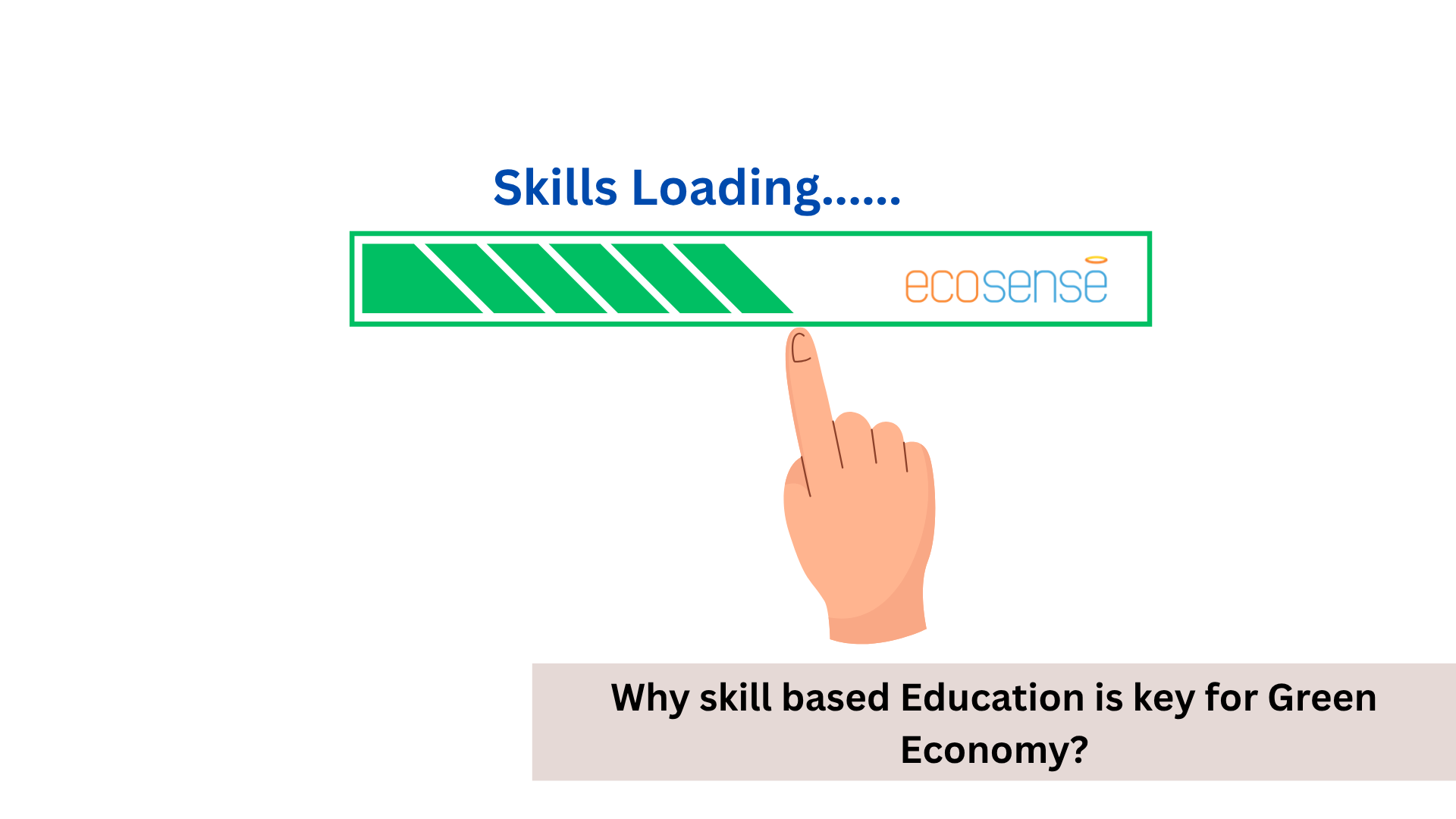Why Skill-Based Education Is Key for the Green Economy
The 21st century economy is undergoing a transformation—and
it’s being powered by sustainability. From renewable energy and electric
mobility to green hydrogen and circular industries, we are witnessing the rise
of a green economy—one that decouples growth from environmental
degradation. But while technologies are evolving rapidly, one crucial piece is
still playing catch-up: human capital.
For the green economy to thrive, we don’t just need
engineers, researchers, and policymakers—we need skilled hands-on
professionals, technicians, and innovators who can implement, operate, and
maintain green technologies on the ground. This is where skill-based
education becomes the cornerstone of a just and effective transition.
What Is the Green Economy?
The green economy is defined by the United Nations as
“low carbon, resource efficient, and socially inclusive.” It encompasses
industries that:
- Reduce
carbon emissions (e.g. solar, wind, EVs, hydrogen)
- Improve
energy efficiency (e.g. BMS, smart grids)
- Promote
sustainable resource use (e.g. recycling, biofuels)
- Create
climate-resilient infrastructure
- Enable
environmental protection and biodiversity
This economy needs millions of skilled workers in
sectors like renewable energy installation, EV maintenance, battery
diagnostics, energy auditing, sustainable construction, and environmental
monitoring.
And yet, there’s a massive skills gap. Traditional
education models are still largely theory-focused, slow to adapt, and
disconnected from what employers in the green economy actually need.
Why Traditional Education Alone Isn’t Enough
While academic degrees provide important foundational
knowledge, they often fall short in preparing students for real-world green
jobs. Here’s why:
- Limited
lab exposure: Many students graduate without ever working on a real
solar panel, EV drivetrain, or battery testing system.
- Lack
of interdisciplinary learning: Green technologies blend electrical,
mechanical, environmental, and digital domains.
- Slow
curriculum cycles: Syllabi are often outdated by the time they are
implemented.
- No
industry immersion: Few programs include internships, certifications,
or live projects aligned with clean technology.
In short, graduates may know how hydrogen is produced, but
not how to safely operate an electrolyzer. They may understand what a microgrid
is, but not how to configure one. Skill-based education bridges that gap.
What Is Skill-Based Education?
Skill-based education focuses on practical, hands-on
training that aligns directly with industry needs. It emphasizes:
- Competency
over content
- Learning
by doing rather than passive memorization
- Certification
pathways recognized by industries
- Workplace
readiness through tool-handling, safety, diagnostics, and
troubleshooting
- Live
projects and simulations that reflect real systems and scenarios
In the context of the green economy, this means setting up
training labs where students:
- Wire
up a solar inverter and test load response
- Run
a battery through real charge-discharge cycles
- Operate
a fuel cell and monitor gas flow rates
- Calibrate
sensors in an EV system
- Build
a microgrid with renewable and storage integration
This is where theory becomes action—and learning becomes
capability.
Why Skill-Based Education Is Essential for the Green Transition
1. Bridges the Workforce Gap
According to IRENA, the renewable energy sector alone could
generate 38 million jobs globally by 2030. India’s National Electric
Mobility Mission projects millions of jobs in EV manufacturing, servicing, and
infrastructure. But to fill these roles, we need job-ready talent, not
just degree holders.
Skill-based education ensures that students graduate with
the technical proficiency and confidence to operate in real industrial
environments from day one.
2. Accelerates Technology Adoption
One of the biggest roadblocks in deploying green
technologies is the lack of skilled manpower to install, maintain, and
troubleshoot them. Whether it’s rooftop solar, hydrogen fueling, or EV
charging stations—systems often fail to scale due to poor implementation.
Technicians trained through skill-based models become enablers
of technology, ensuring quality installation, customer satisfaction, and
system longevity.
3. Empowers Local Economies
Skill-based programs are often regionally relevant,
meaning students are trained in technologies suited to their local
environment—like solar pumps in agricultural areas or microgrids in remote
villages. This creates employment within the community and reduces
reliance on external resources.
4. Encourages Innovation and Entrepreneurship
When students understand both the principles and the
practicalities of green technology, they are more likely to identify
real-world problems and design solutions. This fosters grassroots
innovation and drives the emergence of green startups, service providers,
and maintenance networks.
Ecosense and Skill-Based Education in the Green Sector
At Ecosense, we’ve seen the power of hands-on
learning up close. Our training systems are built to enable skill
development across solar, wind, battery storage, green hydrogen, electric
vehicles, and microgrids. Whether it’s a technician skilling center or an IIT
research lab, our platforms are:
- Modular
and scalable—from beginner kits to advanced simulators
- Designed
for visibility and safety—suitable for classroom use
- Compliant
with national skill development programs (e.g. NSDC, AICTE)
- Integrated
with industry-recognized certifications
We help institutions not just deliver training—but transform
it into employability and impact.
The Road Ahead: Building a Skilled Green Workforce
The transition to a green economy isn’t just about switching
fuels—it’s about reshaping education, training, and opportunity. It’s
about recognizing that sustainable development depends as much on people as it
does on technology.
Governments, industries, and institutions must come together
to promote skill-based education as a core pillar of climate action and
economic growth. This includes:
- Establishing
Centers of Excellence in Green Skills
- Updating
syllabi to reflect emerging clean tech trends
- Encouraging
apprenticeships, simulations, and hands-on projects
- Certifying
skills through recognized standards
- Investing
in training infrastructure that’s future-ready
A Skilled Hand is as Important as a Smart Idea
The green economy is the future—but it won’t build itself.
It needs engineers who can analyze, yes—but also electricians who can install,
mechanics who can maintain, and technicians who can adapt.
Skill-based education ensures that sustainability doesn't
stay in the lab—it reaches the real world. It empowers youth, boosts job
creation, and ensures that the transition to clean energy is not only
possible—but permanent.
At Ecosense, we’re proud to be enabling this
transformation—one skilled student, one lab, and one training program at a
time.

